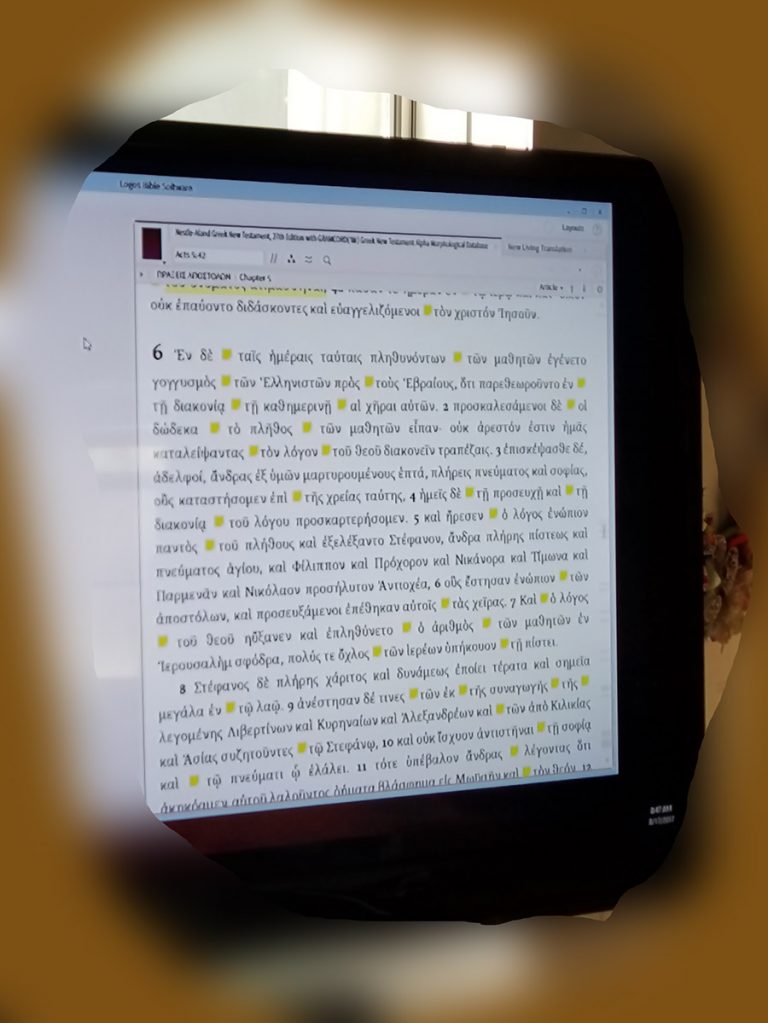Does Gordon Fee Discard Part of the Bible?
In the third part of his interview series, Adrian Warnock makes the following comment in asking a question of Dr. Wayne Grudem:
I was impressed by your compassion and fairness in the introduction of your new book expressed towards your egalitarian colleagues who you mention by name.
At a later point, talking about Dr. Gordon Fee, Wayne Grudem says:
I doubt that people understand the full implications of a move like Gordon Fee’s in his commentary on 1 Corinthians when he basically says that 1 Corinthians 14:33

Thank you, Henry. This is very much what I would have wanted to post on this if I had time.
On the NET Bible footnote, I find the argument that the marginal note must have been written by Paul a very strange one. Why is it more likely that a marginal note written by Paul himself would have been incorporated in two different places than a note written by someone else? It is clear from the references to Paul’s own handwriting in several of the letters, e.g. 16:21 in this one, that he did not personally write out most of the letters, but used an amanuensis; Tertius is named in Romans 16:22. It is anyway unlikely that copyists would have recognised Paul’s personal handwriting. I can agree with the NET Bible editors as well as with Fee that a very likely explanation for the textual issue is that a marginal note was included by copyists. But there is no good reason for any claim that it was Paul rather than say one of his Corinthian critics who penned the note.
Thanks for your kind comments.
The claim that Paul wrote the note sounds like a species of special pleading to me. Someone really wants this note to be authentic, so even though it is a marginal note, they try to claim apostolic authorship for it.
I do think the NET note was much more fair than Grudem’s comment, however, in that they admit the evidence involved, while Grudem suggests that Fee’s primary motivation is theological and not textual. That inverts Fee’s own statement of his process of reasoning which puts the textual arguments first, and then adds that the difficulty of reconciling the texts (1 Cor. 14 & 11) adds weight to the argument.
I can easily see a critic penning the note. My thought is that this critic was dissatisfied with Paul’s guidelines for order and thought that in addition women must never speak, so he made a note to that effect. That is speculation, of course, but the bottom line that it is a marginal comment is on solid ground. Claiming that a careful textual scholar such as Gordon Fee decided to throw it out on purely theological grounds is frankly ludicrous.
It’s nice to see that I was not the only one astounded at the way that Dr. Fee’s position was mis-represented. He actually re-visited the textual evidence regarding 14:34-35 in “God’s Empowering Presence,” where he tackles head on accusations like Dr. Grudem’s. He affirmed that 1 Cor 11 and 14:34-35 do contradict, but that was not what lead him to see the verses as an interpolation, but rather it was the textual issues as you have set them out here that was the deciding factor.
Blessings!